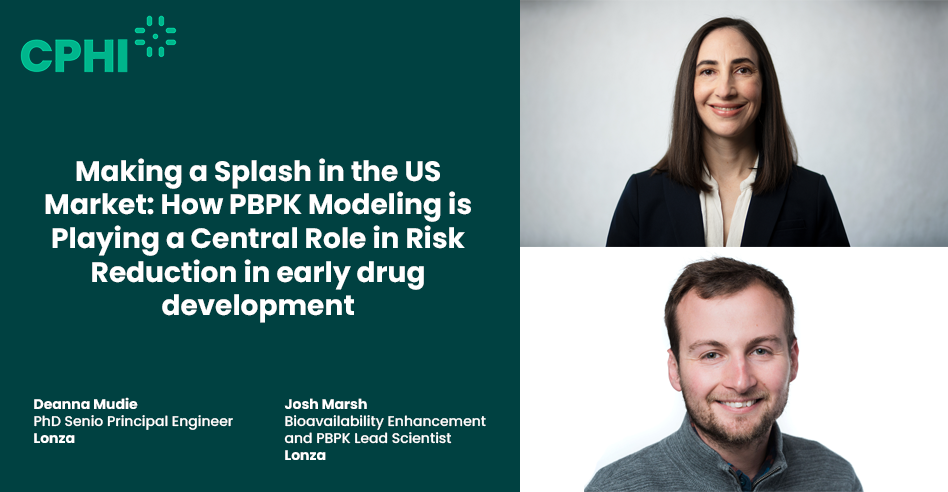Video
13 Oct 2021
Lonza

MP4 53.1 MB
Enabling a healthier world.
Content provided by our supplier
Lonza Capsules & Health Ingredients

-
CH
-
2015On CPHI since
Other Content from Lonza Capsules & Health Ingredients (5)
-
News CPHI North America 2023 – From the Floor
Follow along for live updates from the Content team as we bring you the latest from CPHI North America 2023 - from session talks, panel discussions, interviews, and more, there's a lot to discover with CPHI Online at the Pennsylvania Convention Center! -
News Lonza signs five-year collaboration deal with VC firm Bioqube to speed up portfolio companies’ development and manufacturing
The offering will accelerate timelines for the development and manufacturing of molecules and disruptive technologies -
Video Making a Splash in the US Market: How PBPK Modeling is Playing a Central Role in Risk Reduction in Early Drug Development
Rapid and efficient development of drug candidates is increasingly important for pharmaceutical companies with accelerated timelines and funding constraints. However, many early drug candidates have poor oral absorption properties making it challenging to achieve target pharmacokinetic (PK) profiles. Without upfront knowledge of absorption risks and mitigation strategies, poor absorption can significantly impact preclinical and clinical study timelines and costs. Physiologically-based pharmacokinetic (PBPK) modeling software, such as the GastroPlus® platform from Simulations Plus, simulates dynamic physiological factors impacting oral performance. When coupled with in vitro measurements, PBPK modeling is effective in early development for 1) identifying absorption risks, 2) assessing the potential for solubility enhancing formulations such as salts, cocrystals, or amorphous solid dispersions to mitigate these risks, and 3) designing and optimizing preclinical and clinical studies with respect to dose, prandial state, or gastric pH modification to maximize the likelihood of achieving desired PK profiles. In this presentation, we will demonstrate how PBPK models combined with Lonza’s custom and off-the shelf in vitro tools and solubility enhancement expertise can be used to identify and mitigate absorption risks in early drug development, reducing the need for drug product reformulation or repeated preclinical or clinical studies. Key Learning Objectives: Learn how PBPK modeling can identify potential oral absorption risks and mitigation strategies (e.g. bioavailability enhancement) for early drug candidates. Learn how PBPK modeling coupled with in vitro testing can guide early selection of drug form and formulation to achieve clinical study goals. Gain insights into how key drug and formulation factors including solubility, permeability, and dissolution rate can impact absorption risks such as poor oral bioavailability, food-drug interactions, and pH-dependent DDI effects. -
News Lonza Switzerland site to undergo expansion of microbial development capabilities
The expansion includes the installation of a pilot suite with a 50-L fermenter and automation upgrades to accelerate clinical and commercial projects -
News Lonza boosts exosome capability with Codiak BioSciences facility acquisition
The companies will establish a Centre of Excellence focused on exosome manufacturing and characterization technologies
Position your company at the heart of the global Pharma industry with a CPHI Online membership
-
Your products and solutions visible to thousands of visitors within the largest Pharma marketplace
-
Generate high-quality, engaged leads for your business, all year round
-
Promote your business as the industry’s thought-leader by hosting your reports, brochures and videos within your profile
-
Your company’s profile boosted at all participating CPHI events
-
An easy-to-use platform with a detailed dashboard showing your leads and performance








